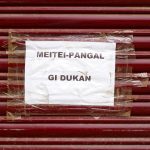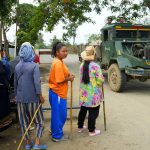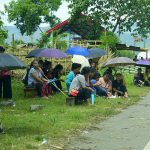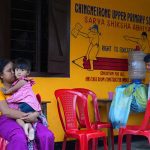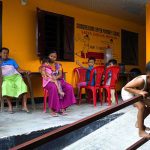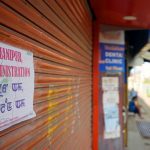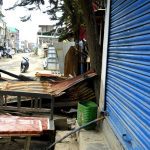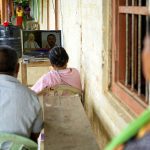
- Home
- India
- World
- Premium
- THE FEDERAL SPECIAL
- Analysis
- States
- Perspective
- Videos
- Sports
- Education
- Entertainment
- Elections
- Features
- Health
- Business
- Series
- In memoriam: Sheikh Mujibur Rahman
- Bishnoi's Men
- NEET TANGLE
- Economy Series
- Earth Day
- Kashmir’s Frozen Turbulence
- India@75
- The legend of Ramjanmabhoomi
- Liberalisation@30
- How to tame a dragon
- Celebrating biodiversity
- Farm Matters
- 50 days of solitude
- Bringing Migrants Home
- Budget 2020
- Jharkhand Votes
- The Federal Investigates
- The Federal Impact
- Vanishing Sand
- Gandhi @ 150
- Andhra Today
- Field report
- Operation Gulmarg
- Pandemic @1 Mn in India
- The Federal Year-End
- The Zero Year
- Science
- Brand studio
- Newsletter
- Elections 2024
- Events
- Home
- IndiaIndia
- World
- Analysis
- StatesStates
- PerspectivePerspective
- VideosVideos
- Sports
- Education
- Entertainment
- ElectionsElections
- Features
- Health
- BusinessBusiness
- Premium
- Loading...
Premium - Events
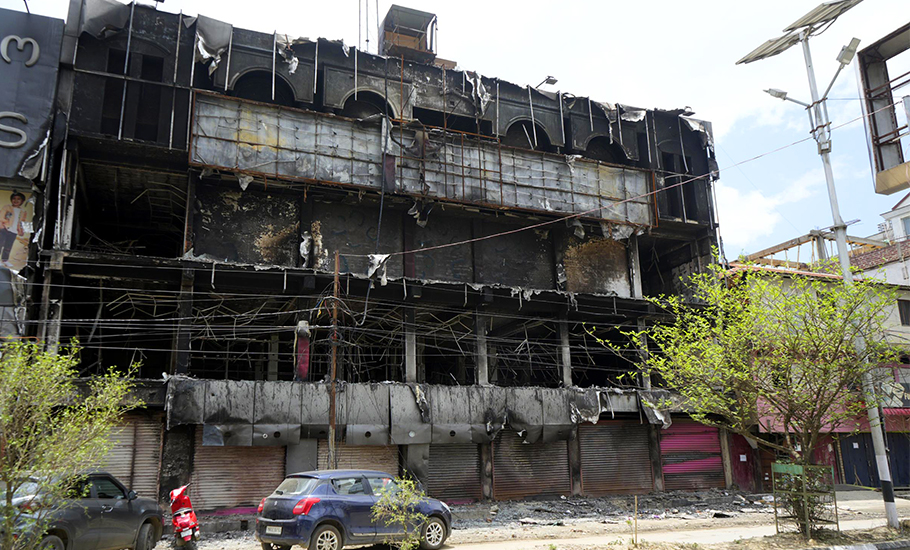
Lives, trust, coexistence: All that has turned to ashes as Manipur burns

In the early morning of June 12 two Meitei men Khwairakpam Sashikumar (40) and O Kumar (58) drove into a Kuki-dominated area oblivious of how the current ethnic conflict has virtually ‘balkanised’ Manipur. The men decided to return after a joyful scooty ride a few kilometres into the Kuki territory in Tengnoupal district as a white blanket of mist engulfed the hills, obscuring...
In the early morning of June 12 two Meitei men Khwairakpam Sashikumar (40) and O Kumar (58) drove into a Kuki-dominated area oblivious of how the current ethnic conflict has virtually ‘balkanised’ Manipur.
The men decided to return after a joyful scooty ride a few kilometres into the Kuki territory in Tengnoupal district as a white blanket of mist engulfed the hills, obscuring visibility. While they were returning on their two-wheelers, a group of tribal people, gathered under a waiting shed, accosted them.
The people spoke in quick, short sentences as they made inquiries about the men’s identities and the reason of their presence in the area. After the initial questions were answered, they were taken to a nearby Kuki village in a Gypsy.
Sashikumar guessed it was Saivom village. By now both men were nervous and began praying their ordeal ends soon.
In the village, the duo had to go through another round of questioning. According to local newspaper reports, even their mobile phones were thoroughly checked.
They were let off only after the village elders were convinced that the duo did not mean any harm.
Sashikumar later told the media that they were treated with “humanity” by the Kuki villagers.

Getting accosted by vigilante groups while travelling from the area of influence of one community to another is typical of the current conflict.
To travel to Kuki-dominated areas from the valley one needs permission from Kuki civil society organisations. Many checkpoints are put up on the way to the hills. Volunteers, mostly Kuki women, keep a round-the-clock vigil at these entry points. All vehicles coming from the valley towards the hills are frisked.
Also Read | Why it falls on CM Biren Singh to clean up ethnic mess in Manipur
The road isn’t easy even for those travelling from the hills to the valley. Similar checkpoints are found even in the valley where vehicles coming from the hills are checked.
The June 12 incident serves as a perfect window to the current situation in Manipur where deep-seated mistrust between Meitei and Kuki communities rules the roost even as humanity and kindness still hold on deep beneath the animosity.
As of now however the antipathy is getting the better of empathy as one of the deadliest ethnic clashes the state ever witnessed continues to rage nearly 50 days since it sparked off.
The trail of destruction apart from over hundred deaths, countless injured and thousands rendered homeless, includes a complete demographic division of two contending communities leading to near balkanisation of territories of their respective influence.
Since the violence broke out on May 3, almost all Meiteis have fled the Kuki-majority hill districts. Similarly, Kukis left Imphal and surrounding areas in the valley dominated by Meiteis for the hills.
Of Manipur’s 16 districts, seven are in valleys and nine in hills. The hills occupy almost 90 per cent of the state area while the valley, with just 10 per cent land area, is home to almost 60 per cent of the state’s estimated population of 36.49 lakh.
Also Read | PM’s silence on Manipur adds to anger, frustration amid violence, flare-up
The demographic segregation has been so extensive that even officials have scooted off to areas dominated by their communities or left the state.
Several Kuki officials, the backbone of Manipur’s top bureaucracy, have either gone on leave or deputation, creating shortage of senior officials, a senior government functionary close to Chief Minister Biren Singh told The Federal.
The vacancy in the administration forced the state government to urge the Centre to rush officials from the central secretariat. It has also directed non-Kuki officials posted outside Manipur on deputation to return to the state.
“Five directors are being rushed from the central secretariat in New Delhi to fill the gap. Many non-Kuki IAS and IPS officials of the state cadres, who are on deputation, are also coming back,” the government functionary added.
The lower rung of administration is the worst affected by the exodus.
Faced with staff crunch, CM Biren Singh said the government is contemplating to start e-office for those who are unable to physically attend office. He further warned that the “no-work-no-pay” policy would be enforced if officials continue to abstain from work.
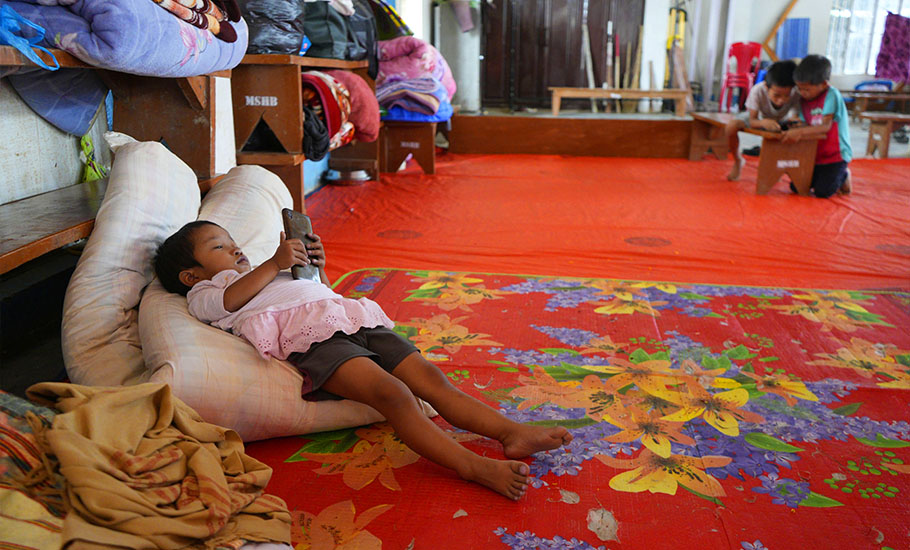
Educational institutions and even families are facing the brunt of the demographic segregation. Seven officials of the Central Agricultural University (CAU), Imphal, opted for transfer to the College of Agriculture (CA) at Kyrdemkulai in Meghalaya in the wake of the violence. The Dean of the college, JK Behara, said the seven came on a temporary transfer of three months due to the current situation in Manipur.
“The exact impact of the population shift on education would be known only after schools and colleges resume classes. But it is obvious that attendance of both students and teachers will not be normal,” said an official of the state education department.
The Manipur government is planning to commence normal classes in schools from June 21 as all the schools in the state have remained closed since May 4. The government’s plans notwithstanding, displaced students fear going back to schools and colleges in the affected areas.
“I don’t think it will be possible for us to go back to Imphal to study anytime soon,” said Gracy Haokip, a research scholar at the Manipur University, who hails from the Kuki community. Gracy has returned to her home district of Churachandpur in the wake of the violent conflict.
Anu Irom Chanu, a student of Don Bosco School in Churachandpur, too is uncertain about the prospect of her returning to the school in the hill district. She had to flee to the valley with her parents after their house was set ablaze, gutting all her study material, official documents along with all other household items. Anu doesn’t know when, if ever, her life would return to normal and studies would resume.

Anu’s fears are no unfounded.
The antagonism between the communities is so intense that even inter-community couples are facing the brunt of it. The most gruesome retribution was faced by two Meitei women allegedly for their proximity with Kukis.
It so happened that a seven-year-old Tonsing Hangsing — born to a Kuki father and a Meitei mother — was hit by a bullet splinter inside an Assam Rifles camp, where his family had taken shelter, on June 4.
The family had moved to the Assam Rifles camp anticipating attacks on their village Kangchup in Kangpokpi district. The village is sandwiched in the foothills between the Meitei-dominated valley and Kuki-majority hills.
The Assam Rifles camp is a buffer between the Kuki and Meitei villages that continue to fire at each other. During one such exchange, Tongsing was caught in the crossfire. He sustained a head injury.
It was decided that the boy be taken to Regional Institute of Medical Sciences in Imphal, just 20 km away. Since the road to the medical institute passes through Meitei dominated areas, it was decided that the boy’s mother Meena Hangsing, herself a Meitei, be accompanied by another Meitei woman Lydia Lourembam.
The ambulance in which the boy was carried to the hospital also had a police escort.
On their way to the hospital, a strong mob of hundreds stopped the ambulance.
Once the mob came to know that Meena was married to a Kuki and Lydia was camping with the tribal community, they became targets. The ambulance was set on fire with the child and two ladies inside as the mob overpowered the police escort.
A Kuki lady married to a Meitei man in Tengnoupal district refused to speak to this correspondent because she feared it could endanger her husband’s life. She even requested that her whereabouts should not be disclosed.
A Meitei man in Imphal, who chose to remain anonymous, sent off his newly-wed wife to her native place in Churchandpur because he was not sure about providing her protection in the present hostile atmosphere.
Citing this demographic and emotional divide, Kuki groups and leaders, including elected representatives, are pushing for a separate administration for the community.
“Our people can no longer exist under Manipur as the hatred against our tribal community reached such a height that MLAs, ministers, pastors, police and civil officers, ordinary men, women and even children were not spared, not to mention the destruction of places of worship, homes and properties. To live amid the Meitei is as good as death for our people,” 10 Kuki MLAs stated in a press communique issued on May 12.
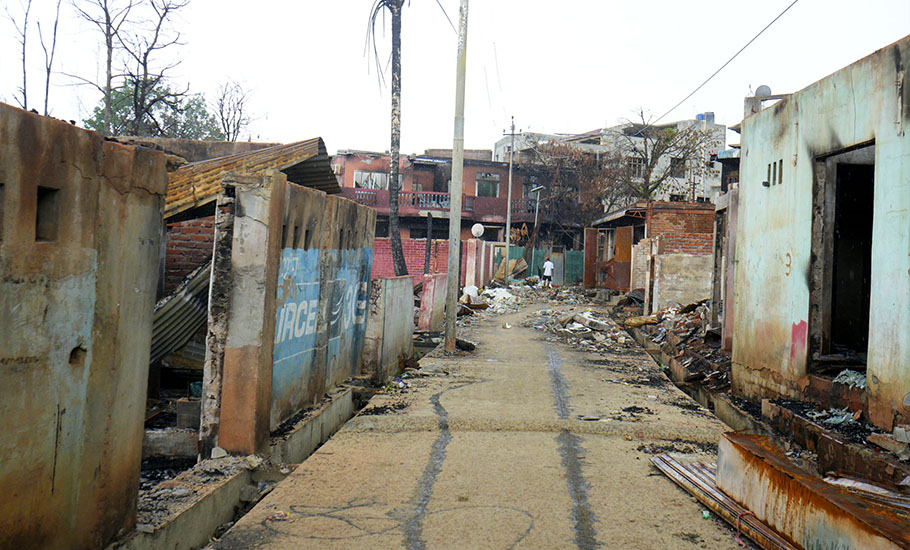
Meitei civil society organisations, including their umbrella body the Coordinating Committee on Manipur Integrity (COCOMI), understandably oppose the separate administration demand. Even the Centre and the state government have ruled out any territorial disintegration of Manipur to resolve the conflict.
The Meitei civil society organisations are of the view that the current conflict is largely a “Chin-Kuki narco-terrorist aggression” on Meiteis and is confined mainly to peripheral villages.
“There is a sense of insecurity, particularly among people in the vulnerable peripheral Meitei villages (those in the foothills), because there have been continuous attacks and firing on them from hill areas by suspected narco-terrorist groups,” said Khuraijam Athouba, COCOMI spokesperson.
The COCOMI leader alleged that many of the Kuki militant groups who are in the ceasefire with the government are in league with the “narco-terrorists coming from across Myanmar” to attack the civilian population.
The COCOMI in a memorandum to Union Home Minister Amit Shah claimed that the spate of violence was aimed at achieving a liberated Kuki land for the benefit of drug cartels. It said until the “narco-terrorist groups are uprooted from the soil of Manipur” there would be no end to the ongoing violence.
Amidst these extreme polarising views, finding a solution to the conflict obliterating the existing demographic and emotional divide appears to be a tall order. What makes the situation intractable is that there isn’t a willingness to de-escalate on either side.
The only hope is that in the past Manipur has shown tremendous resilience to bounce back from such strife.
“Manipur is a very resilient state. We will soon live together happily with a spirit of gone is gone, done is done. Christianity — the dominant religion of the Kuki community —teaches how to forgive and forget. Similar teachings also exist in Hindu religion practised by 70 per cent of the Meiteis and our indigenous faith Sanamahi,” Manipur Congress working president Kh Debabrata told The Federal.

